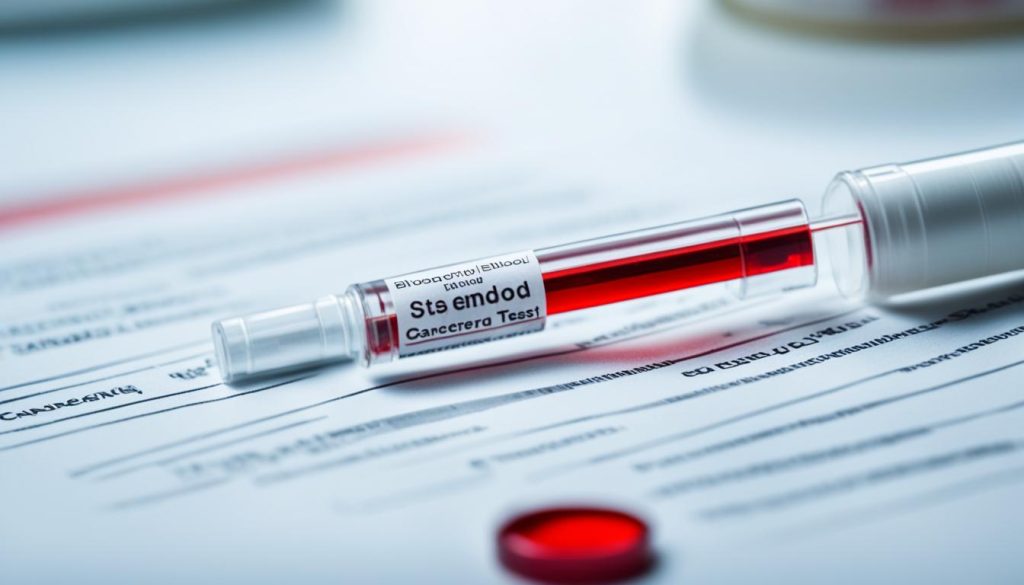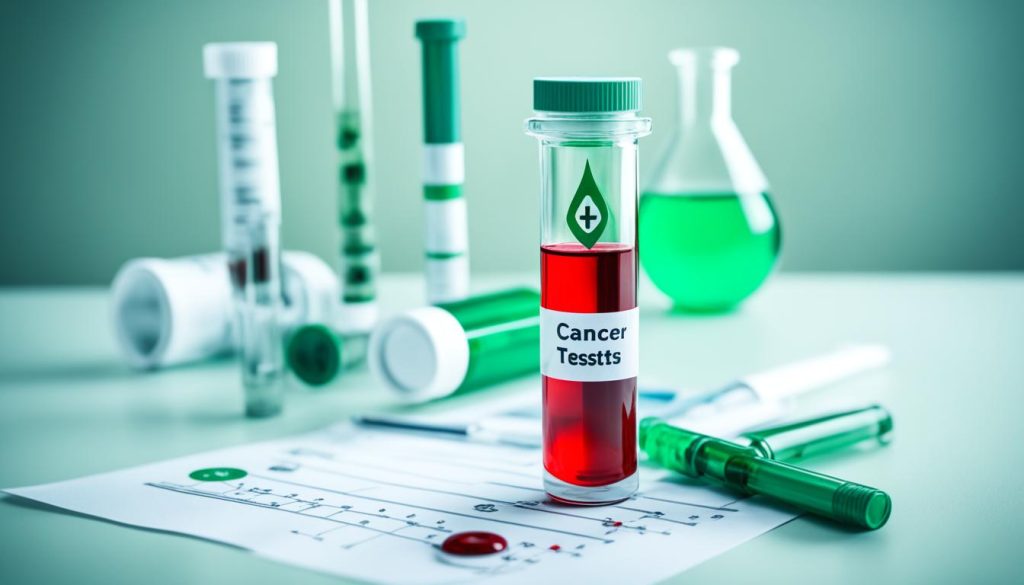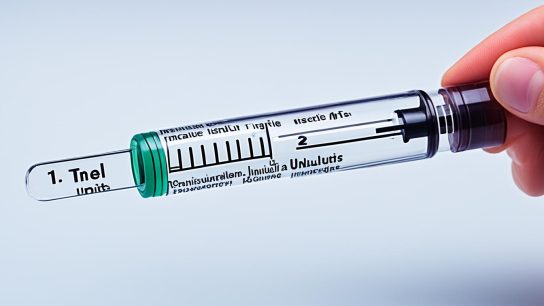Blood tests are a common tool used in routine check-ups to assess overall health and detect various conditions. While blood tests can provide valuable information about nutritional deficiencies, hormonal imbalances, and organ function, they have limitations when it comes to detecting cancer. In most cases, cancers cannot be detected through routine blood work such as a complete blood count (CBC) test. However, specific blood tests called tumor markers can identify certain cancers by measuring the presence of specific chemicals and proteins in the blood. These tests, such as the prostate-specific antigen (PSA) test, are often used in conjunction with other diagnostic methods like physical examinations, imaging tests, and biopsies to accurately diagnose cancer.
While blood tests cannot definitively diagnose cancer on their own, they can provide important clues and indications of its presence. Certain cancers, such as leukemia, can sometimes be detected in routine blood tests like the CBC. Abnormal results in blood work, such as elevated levels of certain markers, may prompt further investigation for the possibility of cancer. However, it’s important to note that abnormal blood test results can also be indicative of non-cancerous conditions or other health issues. Therefore, additional diagnostic tests and examinations are necessary to confirm or rule out a cancer diagnosis. It’s essential to interpret blood test results in conjunction with other clinical findings to ensure accurate cancer detection.
If My Blood Tests Are Normal Can I Have Cancer
The Role of Blood Tests in Cancer Detection
While blood tests cannot definitively diagnose cancer on their own, they play a crucial role in providing important clues and indications of its presence. In some cases, routine blood tests like the Complete Blood Count (CBC) can help detect certain types of cancer, such as leukemia.
Abnormal results in blood work, such as elevated levels of specific markers, may raise suspicion for the possibility of cancer. However, it’s important to note that abnormal blood test results can also be indicative of non-cancerous conditions or other underlying health issues.
Therefore, it is crucial to interpret blood test results in conjunction with other clinical findings and diagnostic tests to ensure accurate cancer detection. Additional examinations, such as imaging tests, biopsies, or specific tumor marker tests, may be necessary to confirm or rule out a cancer diagnosis.
Here’s an example of how blood test results can provide clues for cancer detection:
| Blood Marker | Normal Range | Possible Indication |
|---|---|---|
| CA-125 | 0-35 units/mL | Elevated level may indicate ovarian cancer |
| PSA | 0-4 ng/mL | Elevated level may indicate prostate cancer |
| CEA | 0-3 ng/mL | Elevated level may indicate colorectal cancer |
It’s important to remember that while blood tests provide valuable insights, they have limitations in detecting all types and stages of cancer. Some cancers may not produce distinct markers or abnormalities that can be detected through blood work.
Therefore, it’s crucial to consider other factors, such as physical symptoms, family history, and risk factors, in conjunction with blood test results. Regular cancer screenings, including mammograms, Pap smears, colonoscopies, and prostate exams, should be prioritized for comprehensive cancer detection and prevention.

Limitations of Blood Tests in Cancer Detection
While blood tests play a crucial role in detecting certain types of cancer, they do have limitations when it comes to comprehensive cancer detection. Most cancers do not produce specific markers or abnormalities that can be detected through blood work. This means that even if your blood test results are normal, it does not completely rule out the possibility of cancer.
It’s important to consider other factors in conjunction with blood test results to determine the need for further testing. Physical symptoms, family history, and risk factors should all be taken into account when evaluating the potential presence of cancer. Early-stage cancers may not produce detectable markers, which makes it even more challenging to rely solely on blood tests for diagnosis.
However, it’s worth noting that there are specific blood tests called tumor markers that can be used to identify certain cancers by measuring the presence of specific chemicals and proteins in the blood. These tests are often used in conjunction with other diagnostic methods like physical examinations, imaging tests, and biopsies to accurately diagnose cancer.
Here is a comparison of the limitations and advantages of blood tests in cancer detection:
| Limitations | Advantages |
|---|---|
| Most cancers do not produce specific markers or abnormalities that can be detected through blood work | Specific blood tests like tumor markers can identify certain cancers by measuring the presence of specific chemicals and proteins in the blood |
| Normal blood test results do not completely rule out the possibility of cancer | Blood tests provide important clues and indications of cancer presence |
| Other factors such as physical symptoms and risk factors must be considered alongside blood test results | Blood tests can prompt further investigations and aid in the overall diagnostic process |
| Early-stage cancers may not produce detectable markers | Blood tests can assist in the diagnosis and monitoring of certain cancers |
It is crucial to interpret blood test results in conjunction with other clinical findings to ensure accurate cancer detection. Diagnostic methods such as physical examinations, imaging tests, and biopsies provide valuable insights that help healthcare professionals make informed decisions regarding cancer diagnosis and treatment.

Cancer Screening and Prevention
While blood tests may not always detect cancer, regular cancer screenings are vital for early detection and prevention. By prioritizing routine screenings, individuals can take proactive steps to safeguard their health and improve treatment outcomes.

Screenings such as mammograms, Pap smears, colonoscopies, and prostate exams are specifically designed to detect cancer in its early stages when it is most treatable. These screenings use advanced imaging technology, laboratory tests, and physical examinations to identify any abnormal changes or signs of cancer.
Regular mammograms are essential for the early detection of breast cancer in women. This imaging test can identify small tumors or abnormalities in breast tissue before they can be felt. By detecting breast cancer in its early stages, treatment options are more effective and the chances of survival are significantly improved.
Pap smears, on the other hand, are critical for the early detection of cervical cancer in women. This screening test involves collecting cells from the cervix to check for any signs of pre-cancerous or cancerous changes. Early detection through Pap smears allows for prompt treatment and a higher likelihood of successful outcomes.
Colonoscopies are recommended for both men and women as a preventive measure against colorectal cancer. This procedure involves examining the colon and rectum for any abnormal growths or polyps that may develop into cancer over time. Detecting and removing these polyps early greatly reduces the risk of developing colorectal cancer.
Prostate exams are commonly recommended for men to detect prostate cancer. This screening involves a physical examination of the prostate gland and, in some cases, a blood test to measure prostate-specific antigen (PSA) levels. Prompt detection of prostate cancer through regular screenings allows for timely treatment and improved outcomes.
Benefits of Regular Screenings
- Early detection: Regular screenings can identify cancer at an early stage, when it is more likely to be treatable and potentially curable.
- Improved treatment outcomes: Detecting cancer early increases the chances of successful treatment and improves long-term survival rates.
- Preventive measures: Some screenings, such as colonoscopies, can help prevent cancer by removing precancerous growths before they develop into malignant tumors.
- Peace of mind: Regular screenings provide reassurance and peace of mind, knowing that proactive steps are being taken to monitor and protect against cancer.
It’s important for individuals to consult with their healthcare providers to determine the appropriate screening schedule based on their age, gender, family history, and personal risk factors. By prioritizing regular check-ups and screenings, individuals can play an active role in cancer prevention and ensure their overall health and well-being.
Conclusion
While blood tests play a valuable role in overall health assessment and can aid in the diagnosis of certain cancers, they are not foolproof. Normal blood test results do not guarantee the absence of cancer, as many factors contribute to the detection of this complex disease. It’s essential to consult with healthcare professionals, undergo regular screenings, and consider other diagnostic methods to ensure comprehensive cancer detection and prevention. By being proactive and informed about cancer symptoms, risk factors, and the limitations of blood tests, individuals can take the necessary steps to prioritize their health and well-being.




